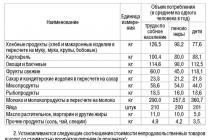Rating agencies(RA) - organizations specializing in assessing the creditworthiness of issuers and investment quality emitted securities. Based on the results of their research, agencies assign credit ratings.
In order to use the ratings correctly, it is necessary to understand that when ratings are issued, agencies primarily evaluate the probability of non-payment of the debt. At the same time, the ratings do not reflect a number of other factors that may be important for the borrower in the future, such as changes in the economic environment or problems with current liquidity.
RAs do not provide guarantees for the results of their research and do not disclose the methodology used in full.
Rating assignment is a commercial service. Its customers are states, companies, financial institutions. The presence of a rating gives issuers the opportunity to offer their securities to a wider range of investors, reduces interest rates, and also makes the borrower known and affects his reputation.
Thanks to the ratings, investors can get an independent opinion on the possibility of investing Money, reduce risks, compare securities in terms of risk-return ratio. At the same time, agencies monitor the solvency of borrowers not only at the time of rating assignment, but throughout the entire period of cooperation, so investors have access to information about the reliability of their investments in virtually real time.
However, the disadvantage of RA is that their data is often late. Their undoubted failure was that they could not warn investors in time about problems in such companies as AIG, Enron, Lehman Bros., Parmalat, etc. The agencies were especially criticized as a result of the 2008 crisis, when investment ratings were assigned to companies that experienced financial difficulties and even caused a crisis in the American real estate market. It was then that for the first time a number of leading investors had doubts about the professional competence of the RA.
It is believed that the main reasons for failures in the work of the agencies were: the slow speed of responding to events, the assumptions used in the methodology, competition between the agencies themselves, as well as conflicts of interest when the rating is paid for by the state or the customer company interested in a positive assessment.
Historically, internationals are registered in the USA. This is due to the fact that American investment funds are considered the largest participants in the capital market.
“One American journalist once said that if earlier it was necessary to bring in tanks, now it is enough to lower the rating of the state, and this will be almost the same blow to the country” (Pavel Samiev, Deputy CEO rating agency "Expert RA")
What are rating agencies?
Rating agencies are commercial organizations, which assess solvency, debentures, as well as other important financial indicators of issuers. They present their assessment in the form credit ratings, which are assigned to organizations, regions, countries depending on their creditworthiness. The main purpose of such ratings is to provide an assessment of the probability to potential investors/lenders that the issuer will/will not fulfill its obligations.
The most famous and authoritative rating agencies in the world are American agencies Standard & Poor's, Moody's, and Fitch Ratings. Their history goes back about 100 years. Russian ratings originate in the 90s and the largest are the Expert RA Rating Agency and the NRA (National Rating Agency).
Agency credit ratings have a similar concept, but different designations and calculation methods. Basically, the ratings are indicated in Latin letters in order of decreasing reliability level from A to C (for some agencies up to D).

Rating agencies are accredited by the Ministry of Finance of the Russian Federation. In total, there are 8 officially accredited agencies in Russia, 3 foreign ones: Standard and Poor's, Moody's, and Fitch Ratings, one joint agency: RA MUDIS INTERFAX and 4 Russian agencies: National Rating Agency, Expert RA, RA "Analysis, Consulting and Marketing", "Rus-Rating".
The advantage of foreign agencies is their impartiality, great authority. The advantage of Russian agencies is their efficiency, seeing the situation from the inside, they can react faster, change the rating Russian companies. Western agencies usually look at IFRS, which are published quarterly/yearly, while Russian agencies look at the reports of some issuers on a monthly basis.
How can a private investor use information from rating agencies?
It should be remembered that credit ratings are not a direct recommendation for buying or selling securities. They reflect only one of the aspects necessary for acceptance investment decision namely creditworthiness. Companies with the highest AAA rating can have problems and default. However, if there are only a few such cases among AAA-rated companies, then companies with pre-default ratings will have hundreds and thousands of such bankruptcies.
Rating agencies continue to have a major impact on financial markets. For example, Standard and Poor's decision to downgrade the US credit rating in August 2011 from the maximum AAA to AA + caused a panic on the stock exchanges and a collapse in quotations around the world.
Follow current news leading rating agencies on our .
Hello dear readers!
Standard Poor's compiles various credit ratings, both long-term and short-term, and on an international scale, on a national scale, it also generates forecasts.

Also, to letter designations+/- signs are added, as an additional value in one direction or another, and letters.
3. Forecasts:
- positive, there is a prospect of improvement,
- negative, on the contrary, there is a possibility of a rating downgrade,
- stable, it is likely that the forecast will not change for the better, not for the worse,
- developing, this type of forecast can be called uncertain, since both an increase and a decrease are possible.
There are other types of ratings that are carried out by the Standard Poor’s agency, but since they are smaller and narrower, they are intended for internal assessment of enterprises, for example, for assessing corporate governance, then I won’t talk about them, otherwise the post will turn out to be more reminiscent of a reference one.





Rating agencies(RA) - organizations specializing in assessing the creditworthiness of issuers and the investment quality of issued securities. Based on the results of their research, agencies assign credit ratings.
In order to use the ratings correctly, it is necessary to understand that when ratings are issued, agencies primarily evaluate the probability of non-payment of the debt. At the same time, the ratings do not reflect a number of other factors that may be important for the borrower in the future, such as changes in the economic environment or problems with current liquidity.
RAs do not provide guarantees for the results of their research and do not disclose the methodology used in full.
Rating assignment is a commercial service. Its customers are states, companies, financial institutions. The presence of a rating gives issuers the opportunity to offer their securities to a wider range of investors, lowers interest rates, and also makes the borrower known and affects his reputation.
Thanks to the ratings, investors can get an independent opinion on the possibility of investing money, reduce risks, and compare securities in terms of risk-return ratio. At the same time, agencies monitor the solvency of borrowers not only at the time of rating assignment, but throughout the entire period of cooperation, so investors have access to information about the reliability of their investments in virtually real time.
However, the disadvantage of RA is that their data is often late. Their undoubted failure was that they could not warn investors in time about problems in such companies as AIG, Enron, Lehman Bros., Parmalat, etc. The agencies were especially criticized as a result of the 2008 crisis, when investment ratings were assigned to companies that experienced financial difficulties and even caused a crisis in the American real estate market. It was then that for the first time a number of leading investors had doubts about the professional competence of the RA.
It is believed that the main reasons for failures in the work of the agencies were: the slow speed of reaction to events, the assumptions used in the methodology between the agencies themselves, as well as the conflict of interest when the rating is paid by the state or the customer company interested in a positive assessment.
Historically, internationals are registered in the USA. This is due to the fact that American investment funds considered the largest participants in the capital market.
As for national RAs, it is believed that they can better take into account local specifics. The most famous Russian agencies are Moody's Interfax Rating Agency, AK & M,.
See what "Rating agencies" are in other dictionaries:
RATING AGENCIES- (English rating agencies) - international and national analytical services that make up the integral risk indices economic entities in terms of reliability as borrowers. R.a. evaluate the reliability of various kinds of debt obligations ... ... Financial and Credit Encyclopedic Dictionary
International rating agencies- (International rating agencies) Rating agencies are an organization that assesses the solvency of subjects financial market International rating agencies: country credit rating, Fitch Ratings, Moody's, S&P, Morningstar,… … Encyclopedia of the investor
Credit rating and global rating agencies- The international rating agency S P for the first time in history downgraded the US credit rating from the maximum AAA to AA+; this event occurred after the prevention of a possible default in the US. Credit rating is an independent and reliable... Encyclopedia of newsmakers
- (RA) - four agencies established in Russia and accredited by the Russian Ministry of Finance along with the "big three" international rating agencies: Expert RA, National Rating Agency (NRA), AK&M, RusRating. In addition, in Russia ... ... Banking Encyclopedia
European debt crisis- This article describes current events. Information can change rapidly as the event unfolds. You are viewing the article in a version dated December 13, 2012 14:59 (UTC). (… Wikipedia Wikipedia
Coupon- (Coupon) Coupon concepts, types of bonds, bond market Information about the concept of coupon, types of bonds, bond market Contents Contents Types of bonds bonds general characteristics and classification of bonds Corporate bonds… … Encyclopedia of the investor
National rating agency- This article should be wikified. Please format it according to the rules for formatting articles ... Wikipedia
National Rating Agency(NRA) is a Russian credit rating agency accredited by the Russian Ministry of Finance, operating since 2002. They were assigned about 400 individual ratings. Largest number ratings were assigned to banks, management, investment and insurance companies, as well as enterprises in the non-financial sector of the economy and holding (financial) companies.
"AAA"- level credit risk rated as low financial statements characterized by very high values of the main financial indicators. The investment strategy and policy are diversified and balanced, the reputation is characterized by the highest degree of trust on the part of customers and counterparties. The ability to timely and fully fulfill obligations is assessed as the highest possible.
"AA+", "AA", "AA-"- the level of credit risk is assessed as not high, the main financial ratios and scores are high. Reputation is characterized by a very high degree of trust on the part of customers and contractors. The ability to fulfill obligations in a timely and complete manner is assessed as very high.
"A+", "A", "A-"– the level of credit risk is assessed as insignificant, the main financial ratios have adequate values. Reputation is characterized high level trust from customers and counterparties. The ability to timely and fully fulfill obligations is assessed as high.
BBB+, BBB, BBB-- the level of credit risk is assessed as moderate, the main financial ratios meet the requirements for them. Reputation is characterized by a moderate level of trust on the part of customers and counterparties. The ability to fulfill obligations in a timely and complete manner is assessed as adequate.
"BB+", "BB", "BB-"- the level of credit risk is assessed as increased, the main financial ratios are within acceptable limits. Reputation is characterized by a certain level of trust on the part of a narrow circle of customers and contractors. The ability to timely and fully fulfill obligations is moderately sensitive to the impact of adverse factors and is assessed as adequate in the short term.
"B+", "B", "B-"– the level of credit risk is assessed as moderate in the short term, the main financial ratios meet the requirements for them. Reputation is characterized by a moderate level of trust on the part of a limited circle of customers and counterparties. The ability to timely and fully fulfill obligations is sensitive to the impact of adverse factors and is assessed as doubtful.
"CC+", "CC", "CC-"- the level of credit risk is assessed as elevated. There is exposure to adverse factors, the probability of default is assessed as high.
"C+", "C", "C-"- the level of credit risk is assessed as high, cases of non-fulfillment of part current liabilities, technical defaults, selective default. The probability of non-fulfillment of obligations is assessed as very high.














